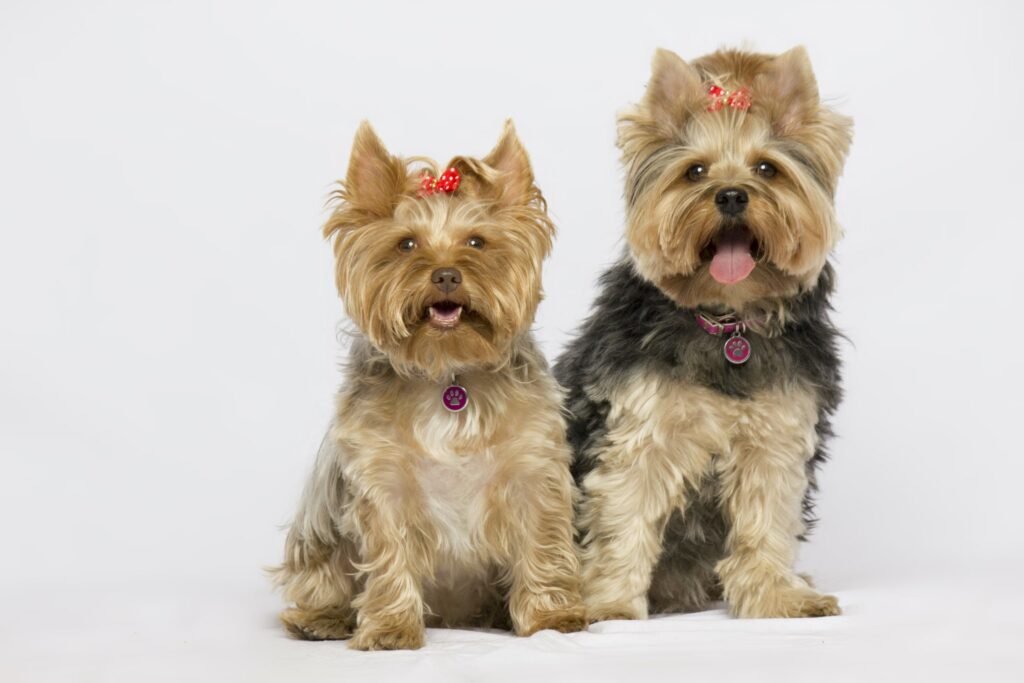Imagine your Yorkie, Bella, racing around the living room. She dodges chairs and tables like a pro, then jumps into your lap for a cuddle. Moments like this make you think: How can I give Bella the best care possible?
You’re in luck! This guide will walk you through everything you need to know about taking care of a small dog like Bella. From what to feed her to how to help her make friends, we’ve got you covered.
So, get comfy and let Bella jump up beside you. We’re about to dig into the simple, yet crucial, world of small dog care. Your little buddy’s life is about to get even better!
Why Small Dogs Are Special
Small dog breeds captivate us not just by their diminutive size, but also by their larger-than-life personalities. Take your Yorkie, Bella, for instance. She might weigh less than a sack of flour, but her spirit? Immeasurable. She acts as though she’s the queen of the household and the protector of the realm, especially when the mail carrier approaches. This duality of being small in stature but big in presence sets the stage for specialized care needs.
Their vibrant personalities necessitate special small dog care requirements more than simply scaled-down versions of what their larger counterparts need. There’s a complexity here; while they thrive on social interaction and play, they also face specific health challenges that we can’t overlook. Dental issues are more common in small breeds, as are specialized nutritional needs to support their high energy levels.
Nutrition: More than Just Kibble
For starters, small dogs like Yorkies often have sensitive digestive systems. You might have noticed Bella turning her nose up at certain foods or, worse, dealing with digestive issues afterward. If that’s the case, specialized wet food could be the solution. There are varieties of wet food Yorkies can tolerate that are specifically designed to be gentle on their stomachs while providing the nutrients they need.
Small dogs have faster metabolisms than larger dogs, which means they need calorie-dense food. But watch out—those calories need to come from quality sources like lean meats and vegetables, not just fats and fillers.
Feeding schedules matter too. Due to their small size and fast metabolism, many small dogs benefit from multiple small meals throughout the day rather than one or two large ones.
To easily monitor what your small furry friends should eat, consider using a daily calorie intake calculator for dogs. It can help you estimate the food needs of your pet.
Online resources like AllThingsDogs.com can provide pet owners with more information on the right food to give their pooches. Such knowledge is crucial for your dog’s health.
Exercise: More Than a Quick Stroll
From teacup poodles to chihuahuas, small dogs need more than a short walk; they crave variety in their exercise routines. While they don’t need as much space as larger breeds, they do benefit from toys that challenge both mind and body. Consider puzzle feeders or mini agility courses for indoor fun.
Lack of exercise can lead to problems like weight gain and stress, so it’s not just about burning off energy. Social interaction is also key; many small dogs enjoy playdates or games of fetch to keep both their minds and social skills sharp.
Socialization: The Art of Making Furry Friends
Early exposure to different people, animals, and environments can make a big difference. Simple trips to the dog park or arranging doggy playdates can provide beneficial interactions. These experiences not only help your dog become more at ease in various settings but also teach them how to behave around other dogs and people.
However, it’s not just about meeting new friends. Training classes offer an excellent structure for socialization while also teaching basic commands and manners. These classes often incorporate elements that help a dog understand social cues, something that’s invaluable in preventing misunderstandings or conflicts.
Grooming: More Than Just a Pretty Face

Maintaining a proper grooming routine isn’t merely about aesthetics; it’s essential for the overall health and well-being of your small dog. These pint-sized pooches often have special grooming requirements, such as frequent hair trims, ear cleaning, and even dental care.
First, let’s talk about fur. While some small dogs have short, low-maintenance coats, others can have long, flowing locks that require regular brushing to prevent tangles and mats. A regular trim might also be in order, not just for looks but also for comfort and hygiene.
Speaking of hygiene, don’t overlook the importance of dental care. Small breeds often have crowded teeth, making them more susceptible to plaque and tartar build-up. Daily brushing and regular dental check-ups can prevent issues down the line.
Nail clipping is another item on the grooming checklist. Overgrown nails can be uncomfortable and even cause posture problems. If you’re not comfortable doing it yourself, many pet stores and vets offer this service.
Wrapping Up
In the end, caring for a small dog is a rich and rewarding journey. Each aspect we’ve covered—nutrition, exercise, socialization, and grooming—contributes to a happy and healthy life for your pint-sized companion. With focused attention and a bit of know-how, you’ll not only meet their special needs but also enrich your life with the unmatched joy they bring.

